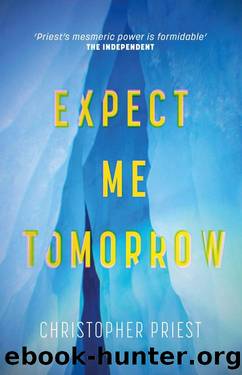Expect Me Tomorrow by Christopher Priest

Author:Christopher Priest [Priest, Christopher]
Language: eng
Format: epub
ISBN: 9781473235151
Publisher: Orion
Published: 2022-09-14T16:00:00+00:00
7
Adler and Adolf Beck (1888-1895)
i
By the summer of 1888 the change in the weather following the eruption of Krakatoa would barely have been noticed by most people in Britain. Five years had passed. Winters were longer, and the cold spells were sharper; springs came a little late; summers were overall cooler than normal, although periods of hot weather still occurred; the leaves on trees started to turn golden slightly sooner than expected. Unless like me you constantly monitored the weather, and knew the averages from the recent past, you might grumble about the long periods of rain, the occasional heavy snowfall, and so on, think them exceptional without realizing a subtle change was taking place.
There was a similar picture around the world. The drifting clouds of ash, dust and gases in the upper atmosphere were barely perceptible from the ground (although Meredith told me the telescope observations were still partly obscured), and were starting to diminish. Sunsets continued to be spectacular.
Weather stations in the Swiss and Austrian Alps reported heavy snowfall, followed by destructive avalanches. The number of icebergs sighted in the north Atlantic was greater than average. The monsoon season in India and other parts of the Far East lasted longer and caused widespread flooding. British people complained that their seaside holidays were ruined by the stiff breezes and recurrent rain showers. French farmers reported crop failures â American farmers suffered a major reduction in corn harvest. The price of wheat tripled. From colleagues in Norway I heard that all the land glaciers were growing thicker and longer.
All these weather events and many more like them could be attributed to normal conditions, and were. The British habitually complained about summer weather, farmers had good years as well as bad, avalanches happened. I studied extremes and norms, patterns and trends. The state of the glaciers confirmed my own researches.
In 1888 there was a solar minimum: Solar Cycle 12 had ended four years earlier and SC 13 was about to begin. No sunspots had been visible for several years. I was aware of the effects.
I studied and recorded the meteorological facts, both directly from the instruments in the grounds of the college, and from reports sent to me every week by observers in many parts of the world. My teaching work continued uninterrupted, helping to turn intelligent young students into officers of the Royal Navy, but most of my spare time, as well as at the weekends, was taken up with quantifying the current levels of sunshine, rainfall, air pressure, wind velocity and so on from around the world. I also created a huge comparative table, analysing past weather, or as much as was known. But annoyingly for me meteorology had until now rarely been treated as much of a real science on historical principles.
The Meteorological Office had been set up some years before as part of the British governmentâs Board of Trade, but it was mostly concerned with forecasting the weather. It was preoccupied by the need to warn of storms at sea.
Download
This site does not store any files on its server. We only index and link to content provided by other sites. Please contact the content providers to delete copyright contents if any and email us, we'll remove relevant links or contents immediately.
Zero at the Bone by Jane Seville(2572)
The Man Who Died Twice by Richard Osman(2299)
Machine Learning at Scale with H2O by Gregory Keys | David Whiting(2291)
Fairy Tale by Stephen King(2069)
Will by Will Smith(2041)
The Stranger in the Lifeboat by Mitch Albom(1532)
Principles for Dealing With the Changing World Order: Why Nations Succeed and Fail by Ray Dalio(1373)
A Short History of War by Jeremy Black(1300)
Go Tell the Bees That I Am Gone by Diana Gabaldon(1234)
Cytonic by Brandon Sanderson(1227)
The Complete Witcher by Andrzej Sapkowski(1224)
515945210 by Unknown(1207)
Strange Weather in Tokyo by Hiromi Kawakami(1188)
Flight by Elephant(1151)
443319537 by Unknown(1072)
Leviathan Falls (The Expanse Book 9) by James S. A. Corey(1030)
Works by Richard Wright(1018)
The Last Graduate by Naomi Novik(1017)
Stan Lee's Master Class by Stan Lee(1011)
